A Complete Guide For Better Sleep: The Ultimate Sleeping Tips
Sleep Related Was this post helpful? Let us know if you liked the post. That’s the only way we can improve. Yes 3 No 1
Sleep Related Was this post helpful? Let us know if you liked the post. That’s the only way we can improve. Yes 3 No 1
Finding oneself awake during the early morning hours frequently turns the concept of sleep into something that seems beyond reach. More than one in ten people in the United States believe that trying to sleep when they’re unable to fall asleep is futile. However, the truth is that you possess greater power over attaining restful sleep than you might think.
Researchers have found out that the most important factor in having a better night’s sleep is developing good sleep hygiene – a series of practices and habits – that can help anyone optimize their sleeping hours, even if their rest is affected by jet lag, shift work or some sleep disorders such as insomnia.
Since we are seasoned insomniacs as well, and we understand the importance of getting a good night’s sleep, we have rounded up some better sleep strategies that are scientifically tested and proven. So, if you are reading this at 3 am because you can’t fall asleep, don’t worry – we have prepared for you a full sleeping guide that will finally help you get some rest.
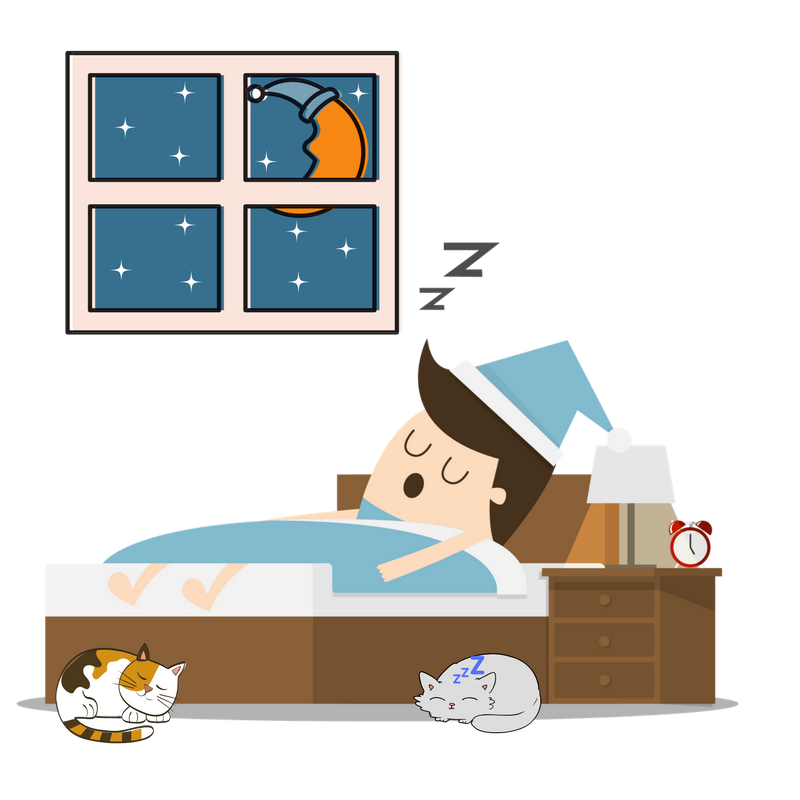
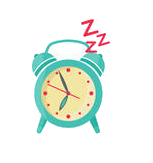
The 8-Hour Sleep Myth
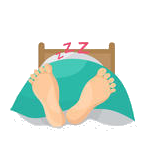
Toward a Better Sleep Hygiene
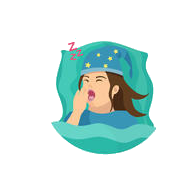
Sleep Disorders and Problems
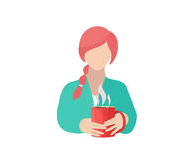
Sleep Supplements: Our choice of Supplements to Experiment with
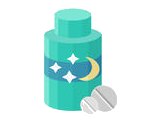
Sleeping Pills & Sleep Aids – Prescription and OTC Products
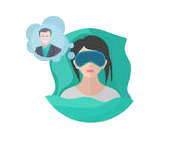
Sleep and Stress – How to Calm the Mind
[et_pb_divider color=”#d1d1d1″ divider_position=”null” disabled_on=”on|on|off” _builder_version=”3.2″ hide_on_mobile=”on” _i=”1″ _address=”2.0.0.1″][/et_pb_divider]
Since people have found out that sleep deprivation in the US is so severe that it has been declared a public health epidemic, they do anything they can to catch up on their precious slumber.
They will sleep in on weekends, or even 10-12 hours a day while on vacation. They will use sleep apps to track their snooze patterns and optimize their sleep, and so forth.
Is this really neccessary? Should we really be worried if we occassionally wake up in the middle of the night without being able to fall asleep again? Do we suffer from a sleep disorder if we experience a few sleepless nights?
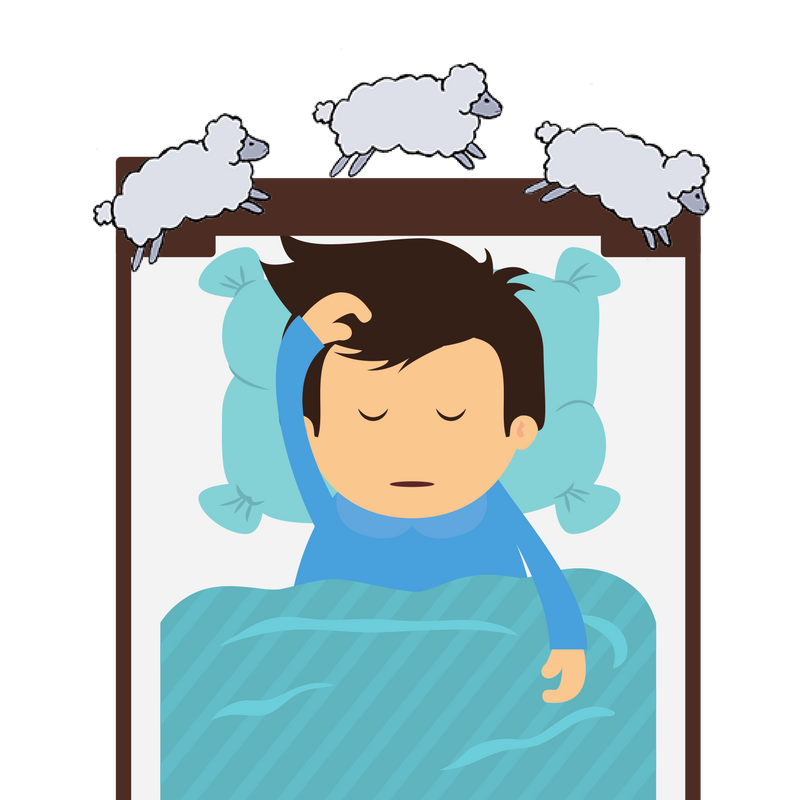
The Centers for Disease Control and Prevention conducted a research that showed that a third of US adults get less than the recommended eight hours of sleep per night. They further warn us about the devastating consequences lack of sleep can have on our health.
Researchers have found evidence that suggest nocturnal awakenings and middle-of-the-night insomnia is not unusual at all. When this happens, you are actually experiencing a throwback to the bi-modal sleep pattern – the practice of sleeping during two periods over 24 hours.
Our ancestors didn’t have a continuous eight-hour sleep routine as we do today. In the past, people actually slept in two distinct segments. So, why are we sleeping differently today? Is it possible that we have all been sleeping wrong? And does experiencing middle-of-the-night insomnia actually mean you are doing things right?
You’ve heard it many times before. To be healthy, you need to get eight hours of sleep per night. Similarly, you also need to drink eight glasses of water a day. Where does this obsession with the number eight come from?
Number 8 represents the symbol of harmony, prosper and balance in many cultures. If we want to figure out why people have chosen this particular number to symbolize harmony and balance, we can get our answer by taking a closer look at our surroundings and even nature. We can observe there are eight planets in the solar system, that spiders have eight legs, and that octopuses have eight arms. Umbrellas have eight sides, there are eight Santa’s reindeers, and in the Bible is stated that there were eight people on Noah’s Ark. Among other, another interesting fact is that the mathematical symbol for infinity is like an 8 on its side. And the list goes on.
We can conclude that the number eight represents entirety, a unity, and a coherent whole. So, in the natural health world, this number serves as a kind of measure you need to stick to in order to be in good health. That is why you are being told to drink eight glasses of water a day and sleep eight hours per night.
Before we start busting the 8 hour-sleep myth, we should learn why we need to sleep at all. People who sleep only four or five hours per night usually brag about their endurance and strength. However, studies show that people who lack of shuteye are actually weaker than people who meet the sandman seven to eight hours every day. Partial sleep deprivation is also linked to faster aging. Research claims that organs of people who sleep 5 to 6 hours a day are a decade older than in people who sleep 8 hours per night. Multiple studies show lack of slumber causes significant changes in the body and increases the risk for severe disease and health issues, such as obesity, heart disease, diabetes, and even cancer. It is possible that sleep deprivation can kill us. Although we don’t know a human that has died from staying awake, animal research without any doubt suggests this could happen.
People biggest mistake about sleep is that they think this is a time when their body and mind shut down. On the contrary, sleep is an active process when a lot of important things happen that are crucial for processing our memories, restoring our strength and energy, and strengthening our immunity. Scientists still don’t know why our bodies are programmed to sleep for such a long period, but they perfectly understand some of its critical functions, and sleep’s role in our health and wellbeing.
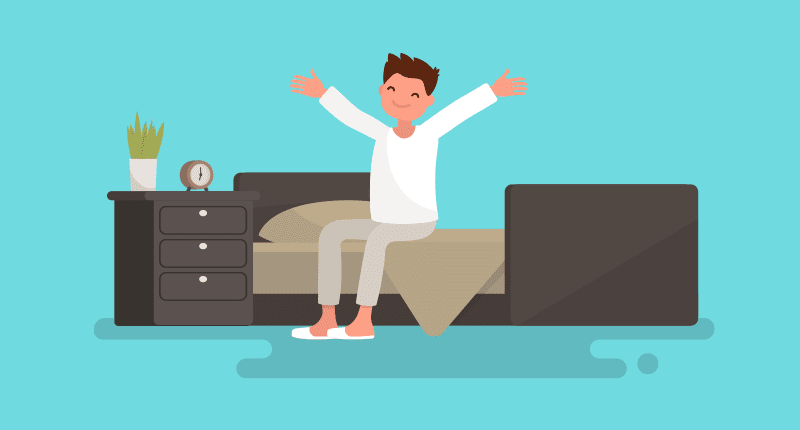
One of the primary roles of snoozing is to help us process and consolidate memories. Every day, our brain is exposed to an incredible amount of information. However, this information cannot be directly recorded or engraved in our mind. All these facts and experiences must be processed by our brain and then stored. Many of these steps happen during slumber. For example, information that was located in our short-term memory is being transferred to long-term memory.
Studies show that after people sleep, they tend to learn new information faster and perform on memory tasks better. Research also shows that sleep is the only legal performance enhancing drug you can get. A night of long, uninterrupted sleep is also vital for growing muscle, repairing tissue, and synthesizing hormones that help our body rejuvenate and restore.

During sleep, our body releases compounds called cytokines. Cytokines play an important role in helping our body fight inflammation and infection. Without enough shuteye, our body cannot produce as much as cytokines as we might need in order to stay healthy. One study suggests that people who sleep six hours a day are more prone to common cold than individuals who sleep more. Other studies show that the immune system of people who suffer long-term sleep deprivation is affected by lack of sleep. The immunity of people who have experienced short-term sleep deprivation of four to five hours a night for a week was also negatively impacted by lack of shuteye.
We have always believed we need to sleep eight hours a day in order to stay healthy. However, nowadays we are facing some claims that sleeping that much is actually unnatural. Some historians and sleep experts have concluded from historical records and clinical trials conducted in the past that the modern model of healthy sleep is not necessary to stay healthy.
Claims suggest that waking up in the middle of the night doesn’t have to be related to insomnia. Rather than a sign of poor sleep, this could actually be a natural occurrence that is entirely healthy.
A historian Roger Ekirch of Virginia Tech published a seminal paper that took him 16 years of research and revealed historical evidence that shows how humans used to sleep in the past. His research shows that people didn’t have eight hours of uninterrupted sleep as we do today. In the past, precisely until the late 17th century, people slept in two distinct segments. In 2005, Roger Ekirch published a book At Day’s Close: Night in Times Past that has more than 500 references to a segmented sleeping pattern in the past, starting from diaries and medical books, to Homer’s Odyssey and other literature.
The references describe a segmented sleeping pattern that consists of first and second sleep. The first sleep began around two hours after dusk. After four hours the person would wake up and stay awake for one or two hours and then fall into a second sleep. During this short waking period, people were very active. References from Ekirch’s book report people used this time to smoke tobacco, have sex, spend time with friends, read, write, pray and so on. Prayer manuals from the late 15th century even had special prayers for those hours in between sleeps. During the late 17th century, mentions about first and second sleep started to disappear. By the 1920s, this idea had receded entirely.
Ekirch believes that this happened due to improvements in street lighting, domestic lighting and a surge in coffee houses. When the night became a place for legitimate activities, and those activities increased, the amount of time people have at their disposal to rest was decreased.
Over time, people became more time-conscious and sensitive to efficiency, especially during the period of industrial revolution. Some medical journals show how parents forced their children out of a biphasic sleep pattern. If their children were healthy, after they woke up from first sleep, they weren’t allowed to have a second sleep.

Today, we have all adapted to eight-hour sleep. Ekirch thinks some sleeping problems people experience at night, such as mid-night insomnia (also known as sleep maintenance insomnia) is actually a natural occurrence that derives from segmented sleep. He also believes that sleeping in one consolidated block may be damaging. He says people who have troubles staying asleep at night will feel anxious because they are not sleeping, and that anxiety will only further prohibit peaceful slumbering.
Dr. Russell Foster, a neuroscientist at Oxford, share Ekirch’s point of view saying that many people report waking up at night and panicking because they can’t fall asleep again. However, if this happens occasionally, it is only a throwback to the bi-modal sleep pattern.
Gregg Jacob, a behavioral sleep medicine specialist, believes that people in the past were forced into periods of rest and relaxation between first and second sleep which significantly helped them to regulate their stress levels naturally. Nowadays, we simply don’t have enough time for this, and it’s no wonder the number of people who suffers from anxiety, stress, and depression has gone up.
Apart from a severe change of lifestyle, artificial lights are also the culprit to blame for changing the way we sleep. Melatonin is a hormone and neurotransmitter that plays a vital role in regulating our circadian rhythm, and light mostly balances its secretion. Some researchers have proven that artificial light can disrupt the normal secretion of melatonin, thus delaying the need to go to sleep immediately after the sun goes down. So, we can say that modern era and lifestyle have definitely solidified our new sleep-wake pattern as well as sleeping habits.
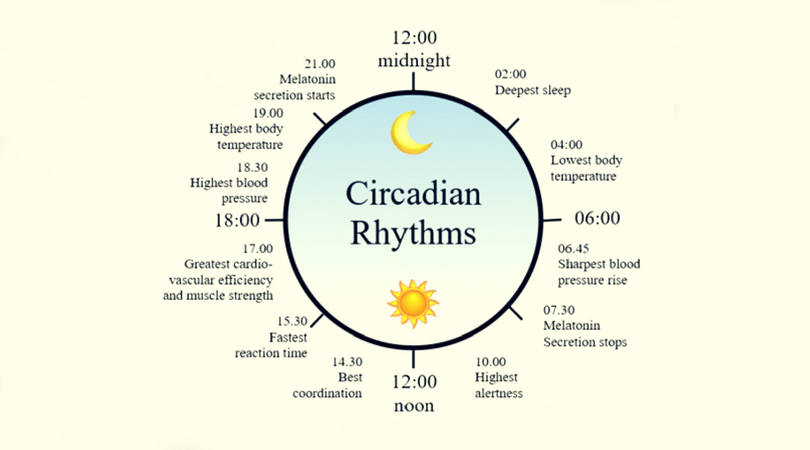
However, changing our sleep and wake pattern from biphasic to monophasic doesn’t mean we are sleeping wrong. It only means we have evolved and adapted to the new surroundings and circumstances. As there is nothing unnatural in occasionally waking up in the middle of the night, there is also nothing abnormal in sleeping eight hours a day without interruption.
“Be careful about reading health books. You may die of a misprint.” – Mark Twain
Although this might appear just as a funny remark by Mark Twain, one should not forget to look at its meaning. False information spreads fast, and it is necessary to always check all the facts before listening to advice that comes from an unreliable source.
When it comes to sleep experts, you should be aware that there are not so many of them out there. Sleep studies is a relatively young field of research, and most of the sleep experts you have heard about are self-proclaimed sleep specialists. The fact is that are only a few research centers where sleep is studied, and when it comes to medical training, sleep is mostly put aside.
So, before blindly believing someone who claims to be a sleep specialist, check the facts and check their biography. You will most likely find out that they are not doctors nor anywhere near a scientist. Pseudo sleep experts are hazardous because not only they spread false knowledge, but if someone listens to their advice, he is putting his health and well-being in real danger.
Is there such thing as sleeping wrong? Yes, if you are not getting enough sleep each night. However, you should remember that every person is different and that we all have different sleep needs, despite broad cultural values and biological pulls. Research has shown that we need around seven to eight hours of sleep per night for a healthy body. So, you don’t have to sleep eight hours every night, but you should definitely try to sleep at least six to seven hours a night anytime you can.
Poor work-life balance, stress and worries are all important stressors that can affect the quality of our sleep. Healthy sleep is critical for retaining information and learning skills that are required to aspire in life. That is why children, who need to acquire language, social, and motor skills, need more sleep than adults. During critical periods of growth and learning, younger people need more shuteye for optimal physical and mental development. A one-year-old requires 11 to 14 hours of slumber a night, while school-age children between 9 and 11, as well as teenagers, require 8 to 10 hours of sleep. Lastly, adults, who have finished their physical and mental development as well as growth, need only 7 to 9 hours of snooze a day.
People who snooze less than they should and become sleep deprived will experience a series of physical and mental issues and disturbances, such as decreased ability to access previous information, memory issues, false memory development, Impaired judgment, decreased sex drive, impaired motor skills and so forth.
Sleeping seven to eight hours per night is essential to experience all the sleep stages. Experiencing all the sleep stages rejuvenates our body and mind, and contributes to creative thinking, long-term memories, and better memory processing. Lack of sleep increases illness risk such as diabetes, heart disease, obesity and heart attack. Occasionally missing a few hours of slumber is not harmful for your health, but chronic lack of shuteye will significantly increase the risk for severe health issues.
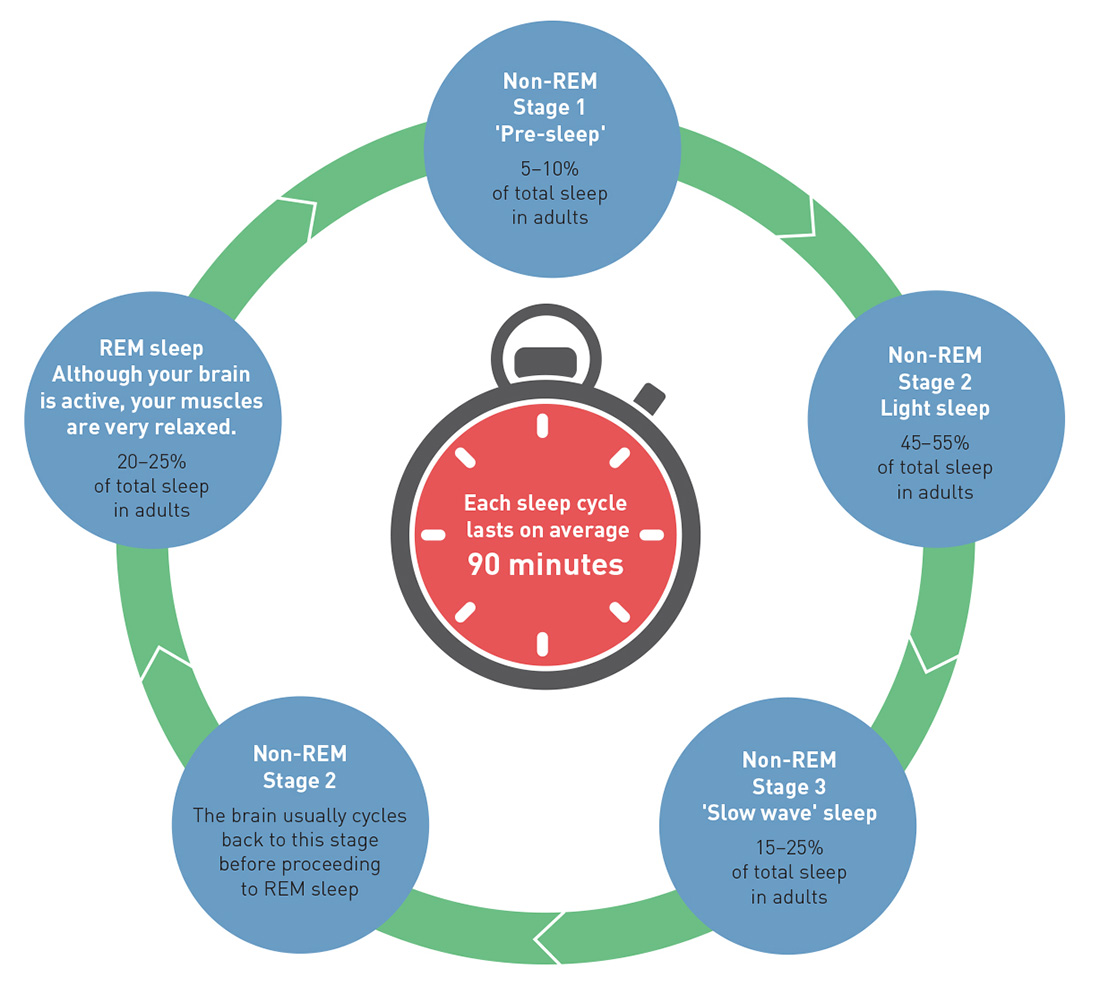
There is no such thing as returning your sleep debt (but it is helpful if you are sleep deprived) and there are no supplements, sleeping aids or alternative sleep patterns that can magically transform 4 hours of sleep into 8. But before giving yourself up to sleeping pills and other sleep aids that may do more harm than good, remember that snoozing is a habit, just like eating healthy and exercising. Better night sleep is as far away as your preparedness to put in a little effort into it.
In the next chapter, learn how to improve your sleep hygiene.
[et_pb_divider color=”#d1d1d1″ divider_position=”null” disabled_on=”on|on|off” _builder_version=”3.2″ hide_on_mobile=”on” _i=”1″ _address=”4.0.0.1″][/et_pb_divider]
Sleep hygiene refers to a series of practices and habits that impact your ability (or inability) to get a good night’s sleep on a regular basis. Your behaviors during the day and before bed can either promote healthy sleep or contribute to experiencing many sleepless nights.
Almost all your daily routines – starting from what you eat and drink, how you schedule your days and evenings, to the medicines you take – are factors that can significantly impact your sleep quality. If you have troubles falling asleep or staying asleep at night, even a few slight adjustments can mean the difference between sound slumber and restless nights.
To overcome your sleeping difficulties in a healthy way and to improve your sleep, try some of our healthy sleep habits.

In the past, sleep hygiene was a term that referred to the cleanliness of an individual’s sleep environment. Today, the term is much broader and applies to behaviors, practices and habits – both good and bad- that affect your ability to get a good night’s rest.
The most important factors that affect your sleep hygiene are your choice of mattress, bedding materials and sleepwear. Bedroom temperature, light and noise levels can also improve or disrupt your sleep. Your diet, the medications you take and pre-bed activities you engage in can also interfere with quality sleep. Lastly, stress is a major factor that affects sleep hygiene.
If you struggle with insomnia, before reaching to sleep pills and other sleep aids, you should improve your sleep practices and habits. If improving your sleep habits didn’t make a difference, you should visit a doctor. Practicing better sleep habits can significantly help you sleep better even if you suffer from a sleep disorder. However, some serious conditions such as sleep apnea and narcolepsy cannot be solely treated by improving your sleep hygiene. In that case, it is also important to visit a doctor in order to find the most effective solution for your sleep problem.
Instead of spending the entire night counting sheep, it is time to develop an action plan that will help you get rid of insomnia permanently. First, we will take a look at the long-term strategies that take some time to work, but are crucial for getting a better night’s sleep. But if your clock is ticking and you need to fall asleep right now, we have also prepared some quick solutions for meeting the sandman.
Long-term solutions for better sleep consist of setting a sleep-wake schedule, optimizing your bedroom environment and avoiding pre-bed activities that may negatively affect your sleep. Eventually, you will have to make some permanent lifestyle changes that that promote healthy sleep.
If you have troubles with sleep onset and sleep maintenance insomnia, creating a consistent sleep schedule will significantly help you. The general rule is to do your best to go to bed and get up at the same time at nearly the same time every day. If necessary, set the alarm, and make sure you follow your sleep and wake routine on the weekends and even when you are on a vacation.
No matter how tempting sleeping in may be on your days off, if you want to reset your circadian rhythm and put it back to normal, you have to stick to your snooze-wake schedule. Your inner clock is re-tuned when you start waking up without an alarm in the morning. You will also start feeling sleepy at the same time each evening.
Although none of the available sleep apps for smartphones are particularly accurate and can’t help you optimize your sleep, they can help you identify the activities that help or hurt the chances of getting a good night’s sleep. By using apps such as Sleep Cycle and Pillow, you can record how much and when you sleep, your fatigue levels and similar. The ultimate goal would be to establish a better bedtime routine.
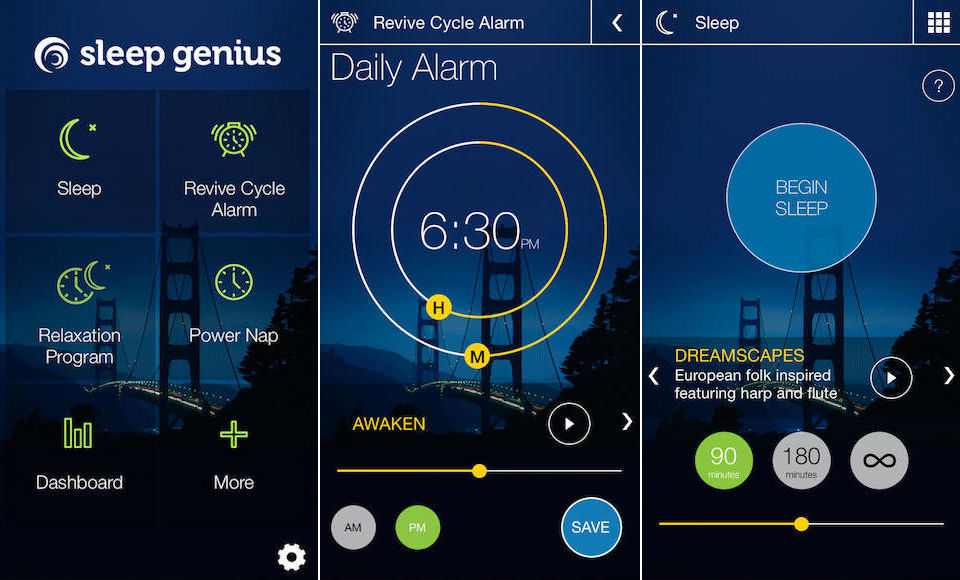
Sleep Genius
It is important to note that instead of using these apps to get the perfect number of sleep cycles or wake up during the right stage of sleep, use them to make your snooze-tracking easier. Although sleep is something we can easily affect, an app is not merely enough to improve your sleep hygiene or fight off insomnia.
Natural sunlight is very important for regulating your circadian rhythm. If you have difficulties falling asleep, dim the lights around 2 hours before bedtime, and expose yourself to bright sunlight for one hour in the morning. This is also an effective treatment for jetlag. If natural sunlight is unavailable when you wake up in the morning, expose yourself to bright bedroom lights.
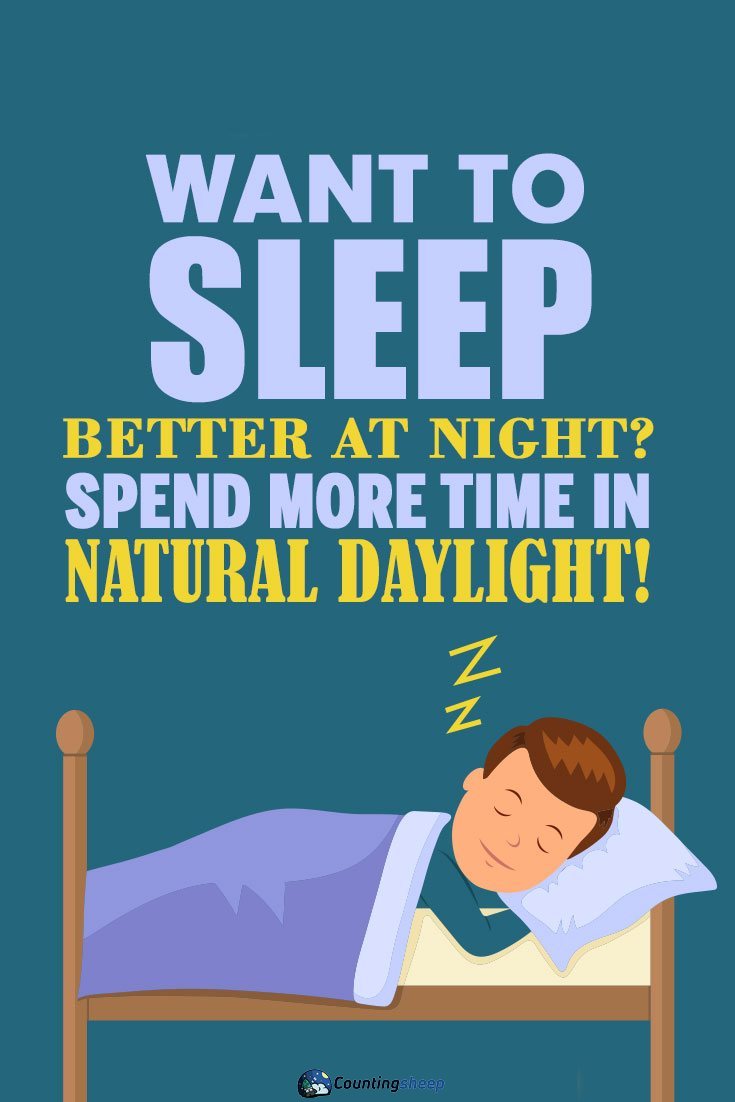
Naps can help you get some rest and restore your alertness during the day if you struggle with insomnia and other sleep problem. However, napping close to bedtime can interfere with your sleep and wake cycle. Experts recommend it is best to nap for 20 minutes in the mid-afternoon. Napping for too long during the day may also cause sleep disturbances at night.
Many OTC and prescription sleep drugs can cause increase your alertness or cause headaches and other things that may interfere with sleep. Other sleep drugs may even cause excessive daytime sleepiness and fatigue. That is why it is imperative to be mindful of the effects of medications you’re currently taking. If you are taking sleeping pills, you must inform your physician when side-effects of those medications make your condition worse.
A bedroom should be used only for sleep and sex—nothing else is allowed. Treat your bedroom as a sleep sanctuary and not as your office, games room or cinema. To optimize your bedroom for sleep, adjust the lighting and the temperature appropriately and make sure you use the right bed.
A cool, but not cold bedroom can aid you to sleep. The ideal temperature for sleep is between 60 and 67 degrees Fahrenheit. Being too warm will not help you fall asleep faster. Instead of trying to warm yourself up by wearing socks or layers of clothes, try to regulate your temperature by sleeping in bedclothes made from natural fibers that will allow your skin to breathe.
Our sleep and wake cycle, also known as the circadian rhythm, is regulated by hormone melatonin. Exposure to light regulates the excretion of this hormone. Bright sunlight stimulates the secretion of this hormone, telling us we should be awake, while at night, our level of melatonin decreases and tells our brain it’s time to sleep. Since exposure to light and darkness is a key factor of regulating the levels of melatonin in our body, it is important not to sleep in a bedroom that is flooded by sunlight or too dark all the time. Quality curtains, blackout blinds or even a pair of eyeshades may address this issue with ease.
Apart from electronic devices, LED lights also emit blue light that may disrupt with melatonin production. To optimize levels of light in your bedroom, use adjustable lights with a dim setting. This will help cut down your exposure to artificial and blue light.
If you are sleeping with your partner, you need a 6ft bed to sleep comfortably. If you have the funds, just buy the biggest and most comfortable bed that you can find. You also need a quality mattress made from natural fibers and the right pillows. Sleeping on a good mattress will not only help you sleep better but also to regulate your temperature.
Even if you are a heavy sleeper, noise can distrub your sleep and prevent you from transitioning into deeper stages of sleep. If you difficutlies controlling the bedroom noise, create some white noise (turn on a fan or listen to soothing music) or use ear plugs.
The ideal sleepwear should feel comfortable to you. If you don’t feel comfortable sleeping in pajamas or shirt, just sleep naked. Sleeping nude is actually the best option for those who sleep hot. If you are not sure what sleepwear makes you feel comfortable, feel free to experiment.
As sleepwear, your sheet and blankets should be chosen based on the climate you live in and your personal comfort preferences. In warmer months, it is best to use sheets made of breathable cotton. Cotton bed sheets trap heat, so they are also a good choice when it’s cold. Materials such as wool offer a lot of warmth, but also trigger allergies that can disrupt sleep.
Your pre-bedtime activities can significantly affect the quality of your sleep, as well as your ability to fall/stay asleep.
You should avoid heavy meals before bed because they can cause discomfort. However, going to bed hungry is also not recommended because it will disrupt your sleep at night. Since every person metabolizes food differently, there is no such thing as the right amount of eating before bed. It is best to be moderate and stick to snacking.
Apart from a heavy meal, you should also avoid drinking lots of fluids for at least two or three hours before bedtime. A full bladder — as you certainly know — can wake you up during the night.
Caffeine can stay in your system for more than 12 hours, so if you are struggling with falling asleep at night, you should take our last coffee in the noon. Caffeine, apart from preventing you from falling asleep, may cause nighttime waking or reduce total sleep time. Nicotine and sugar foods have the same effect. Additionally, alcohol should also be avoided. Although it acts as a depressant that will first sedate you, it will also force your brain to remain in light sleep during the entire night. Alcohol may also cause frequent arousals followed by sweating, headaches and intense, vivid dreaming.
If you think exercising before bed will help you fall asleep, you are wrong. Exercising is a stimulating activity that will increase your heart rate and make you more alert. Instead of exercising before bed, you should engage in activities that help you unwind. A warm bath, listening to calming music or reading will help you relax before bed.
If you have troubles falling sleep, exposing yourself to blue light that comes from your TV, computer, tablet and phone can only make things worse. Blue light emitted by electronics suppresses melatonin production and prevents you from getting sleepy at bedtime. It is recommended to avoid exposure to electronic devices one hour before going to bed.
As we mentioned before, in most cases, an individual’s insomnia is caused by inappropriate lifestyle habits and poor sleep hygiene. If you want to sleep well for many years to come, you simply have to live better. This means you must exercise, eat healthier, limit caffeine, alcohol, and smoking.
Studies find moderate physical activity can improve your sleep quality. Note that exercising and being physically tired is not the same as feeling sleepy. Exercise can indirectly aid sleep because it’s a good way of being awake during the day.
When it comes to food, no particular food is known to have benefit in helping you sleep. However, that doesn’t mean you shouldn’t have a healthy and balanced diet.
When it comes to coffee, alcohol, and cigarettes have in mind that these are stimulants that will keep your mind awake, rather than silencing it down. Studies show that alcohol reduces rapid eye movement (REM) sleep. Stimulating substnaces such as marijuana and tobaco have the same effect.
A basic prerequisite for good sleep is a quiet mind, so anything that can silent the mind will help prepare you for sleep. It does not matter how physically tired you are if you do not have a quiet mind you will find it hard to fall asleep. Also, anything that cognitively arouses you can make it more difficult for you to fall asleep.
Another important sleep habit you should work on is silencing your mind before going to bed. You have to find what works best for you. For example, studies show that meditation can help you unwind and improve your sleep quality. Apart from meditation, you can also try yoga and deep breathing to relax before you go to sleep.

It is very important to mention that if you apply all these tips and strategies when you are in a new sleeping environment, such in a hotel or even at your best friend’s home, they probably won’t work. If you have troubles falling asleep in a new environment, that is completely normal. This happens because only one half of your brain is asleep, while the other one is staying alert in case of danger. Study conducted by Masako Tamaki, Ji Won Bang, Takeo Watanabe, and Yuka Sasaki and published in Current Biology Journal, suggests that one brain hemisphere works as a night watch during sleep in a new environment. This especially applies to sleep associated with first-night effects in humans.
Instead of going into deep sleep, your brain will remain in light sleep and almost work as a threat detection system. As we mentioned before, during deep sleep your body repairs itself, replenishes nutrients and rejuvenates. Without deep sleep, it is hard to feel refreshed in the morning. That is why when you are sleeping on the road, in a hotel or somewehere else rather than your bed, you may feel tired when you wake up. So, next time you feel like you were half asleep, the truth is you probably were.
First, we have to say that you shouldn’t sleep if you don’t feel sleepy. Yeah, we are aware that it sucks when it’s 2 or 3 am in the morning and you still don’t feel tired. However, going to bed just because you know you need to rest, will not help you fall asleep. To make yourself sleepy, try out the following relaxing activities. If 20 minutes have passed and you still can’t sleep, get out of bed and do another set of our relaxing activities.
Remember how hard it was to read classic novels like Anna Karenina by Leo Tolstoy when you were a kid? If you need help falling asleep, the classic books you hated may do the trick. Although there is no positive correlation between reading classic novels and falling asleep, many people find reading dull books perfect for meeting the sandman faster.
Need some suggestions? There are huge lists of boring books online you can check. Who knows, you might fall asleep while reading those lists. Among the most boring books are The Old Man and the Sea by Ernest Hemingway, Moby-Dick or, The Whale by Herman Melville and To Kill a Mockingbird by Harper Lee.
Studies find this herb can reduce anxieties and help us unwind. If you can’t sleep, a cup of warm tea may be the thing you need to relax your mind. Although there is no scientific evidence milk helps us fall asleep, many people reported that a hot milky drink works for them like magic.
If you can’t sleep, make yourself a warm bubble bath and just enjoy. Add some calming essential oils and listen to your favorite music. Stepping from warm water into a nicely cooled bedroom will cause a small drop of body temperature and slow down your metabolic activity. This will most likely trigger sleepiness and improve your chances of meeting the sandman.
Although some people think pets could rather disturb our sleep than help us falling asleep, there are no studies that prove it. On the contrary, some studies show that dogs can actually improve our sleep quality. So, if you have a dog or a cat, or even a hamster, bring them into your bed and just snuggle them until you fall asleep.
Still can’t fall asleep? Combine all the relaxing activities into your pre-sleep ritual. Start with a warm bath, prepare some tea or hot milk, get into bed and start reading your favorite boring book. Also, don’t forget to bring your little furry friend with you to keep you company. Before you know it, you will be drifting in a joyful slumber. It is also important to accept the fact that you currently can’t fall asleep. If you are filled with thoughts like “If I don’t get X hours’ of sleep tonight, I’ll lose my job and die tired and alone” you won’t achieve anything. Be gentle with yourself and consider the good side of staying awake this night – you might see a glorious sunrise.
If you have tried everything and nothing works, you should consider visiting a professional to identify the cause of your lack of shuteye. Only a doctor can rule out sleep disorders and identify lifestyle factors that may be affecting your sleep. A professional can also determine whether or not you need therapy. Sleeping problems can either be regulated with medications or behavioral therapy such as CBT-I.
In chapter 3, learn how to recognize some of the most common sleep disorders.
[et_pb_divider color=”#d1d1d1″ divider_position=”null” disabled_on=”on|on|off” _builder_version=”3.2″ hide_on_mobile=”on” _i=”1″ _address=”6.0.0.1″][/et_pb_divider]
Sleep disorders are a group of conditions that affect your ability to sleep well at night. These conditions must be take seriously because they may have severe consequences on your physical and mental health.
The first sign your sleep problem has become a serious condition is when it begins to occur regularly and starts interfering with your daily life and activities.
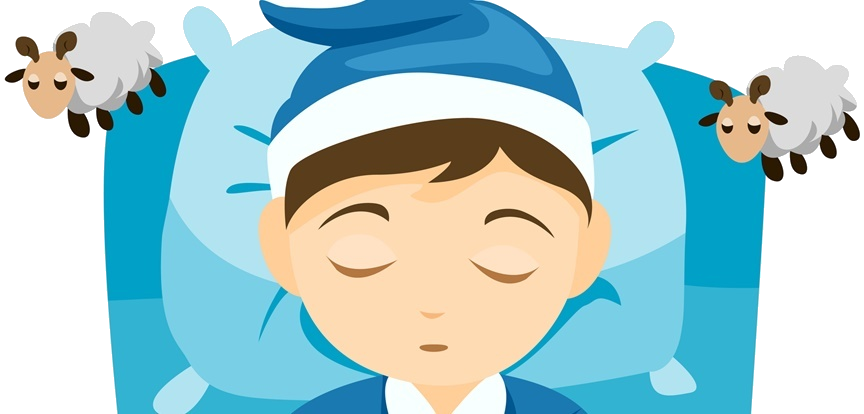
In the United States, sleep disorders have become an increasingly common occurrence. Research shows that more than 75% of Americans aged from 20 to 60 years have difficulties sleeping well regularly. Most sleep disturbances are caused by stress, hectic schedules, or by an underlying health problem. The first sign you may be dealing with a disorder is when sleep issues begin to occur regularly and start interfering with your daily life and activities.
Lack of sleep can have a negative impact on your mood, concentration, energy levels and overall health. Good news is that most sleep disorders can be successfully treated. Successful sleep disorder management consists of medical treatment and lifestyle changes. In case your issue is caused by another health condition; your sleeping problems will go away when you treat the underlying cause.
Without sufficient sleep, it is impossible to stay healthy. If you suspect you might have a sleep issue, it’s of utmost importance to receive a diagnosis and therapy as soon as possible. Sleep disorders will not only have severe consequences on your health, but will also impair your work performance, affect your relationships, and prevent you from performing and completing daily activities.
Symptoms depend on the severity and type of sleeping disorder. The symptoms can also be different if they are caused by an underlying medical condition. However, they all have the following general symptoms:
Sleep disturbances can be caused different health conditions and diseases. Unfortunately, in most cases, sleep problems are a result of another health problem, such as allergies, nocturia, chronic pain, stress, anxiety and so on.
Respiratory problems and allergies may prevent you having a good night’s sleep if the condition makes it challenging to breathe at night. Nasal congestion often causes sleeping difficulties.
Nocturia, or frequent urination, is another reason for not having a good night’s sleep. People with nocturia frequently wake up during the night. Hormonal imbalances and diseases of the urinary tract often contribute to the development of this condition.
Constant pain can also prevent from falling asleep or staying asleep at night. Some of the most common causes of chronic pain include arthritis, fibromyalgia, persistent headaches and lower back pain. In some cases, chronic pain may even be aggravated by sleep disorders. For example, doctors and sleep experts believe the development of fibromyalgia might be linked to sleeping issues.
Stress can severely impact your sleep quality. Due to stress and anxiety, you may not be able to fall asleep or stay asleep. Nightmares, sleep talking, or sleepwalking also disrupts sleep.
The most common sleep disorders are insomnia, sleep apnea, restless leg syndrome, parasomnia, and narcolepsy. Let’s take a closer look at each condition.
Insomniacs are unable to fall asleep at night. When they do, they wake up frequently and cannot remain asleep during the entire night. Insomniacs often cannot fall asleep at the proper time and wake up very early in the morning. They always wake up tired and exhausted.
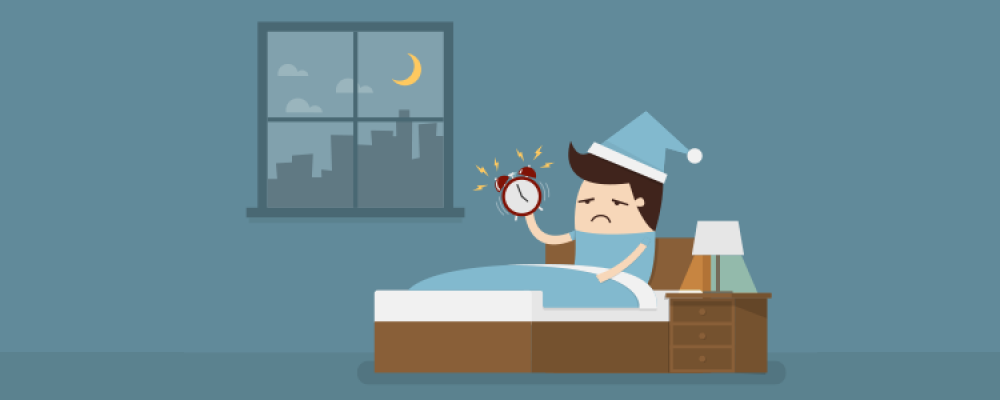
This disorder can be caused by stress, jet lag, hormone misbalance, digestive problems and much more. It may also be a symptom of another condition. Long-term insomnia that has lasted more than one week can severely affect your overall health and quality of life. Symptoms of insomnia often include the following:
Unfortunately, this sleep disorder is widespread in the United States. Research shows that around 50% of American adults experience insomnia symptoms on a daily basis. It’s most common among older adults and women.
There are three types of insomnia – chronic, intermittent, and transient. Chronic insomnia occurs on a regular basis for at least one month. Intermittent happens periodically, while transient lasts just a few nights at a time.
Obstructive sleep apnea is a severe medical condition that is characterized by pauses in breathing during sleep. Breathing stops when your airway gets blocked during sleep. In many cases, it is caused when soft tissues at the back of the throat relax and collapse. Septum deviation, enlarged tonsils, and adenoids may also cause this problem.

Although the person suffering from this disorder frequently wakes up during the night when their breathing stops, most aren’t aware of that. An apparent symptom of obstructive sleep apnea is snoring. Snoring, as well as other signs of this condition, are often observed by a bed partner.
Signs of obstructive sleep apnea include or may include the following:
Good news is that obstructive sleep apnea can be treated. In most cases, treatment involves changing your lifestyle and sleep habits or wearing a device that ensures your airway stays open while you sleep. In more severe cases, surgery may be an option.
Parasomnias include a group of sleep disorders that are characterized by abnormal movements and behaviors during sleep. The most common parasomnias are the following:
Parasomnia can also occur while falling asleep, between sleep stages, and during arousal from sleep. Although the behaviors are often complex and seem as they have a purpose, the parasomniac remains asleep during the event and usually has no memory that anything occurred.
Restless leg syndrome is characterized by an overwhelming need to move your legs. Although these symptoms can occur during the day, they are most common at night. This sleep disorder is often associated with certain health conditions, such as ADHD and Parkinson’s disease.
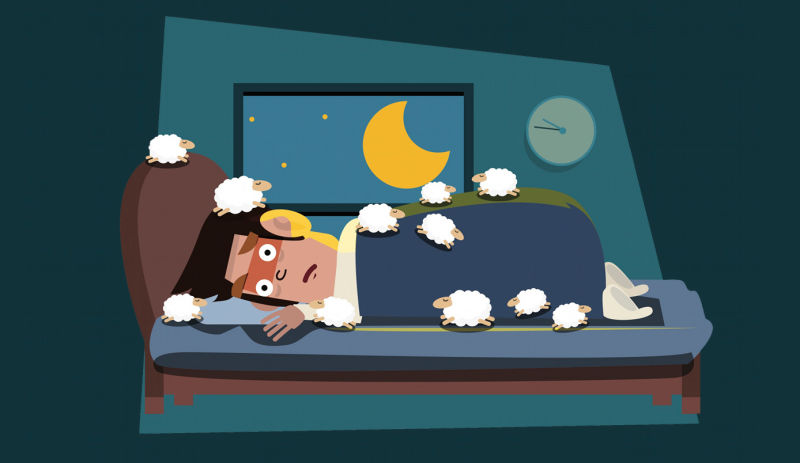
Restless legs syndrome affects around 10% of the United States’ population. The condition is often unrecognized or misdiagnosed, particularly when the symptoms are not continuous or mild. When correctly diagnosed, it can often be treated successfully. Nondrug treatment includes leg massages, applying heating pads or ice packs, and practicing good sleep habits.
Medications used to treat the issue include dopaminergic drugs such as Mirapex or Neupro, benzodiazepines, and pain relievers. Patients also react well to anticonvulsants such as Neurontin. Although there is no cure for restless legs syndrome, current therapy keeps the condition under control, facilitates symptoms, and improves sleep.
This sleep disorder is characterized by sleep attacks that occur at any time during the day. They are especially frequent when the patient stands or sits still, such as when reading, eating or driving a car.
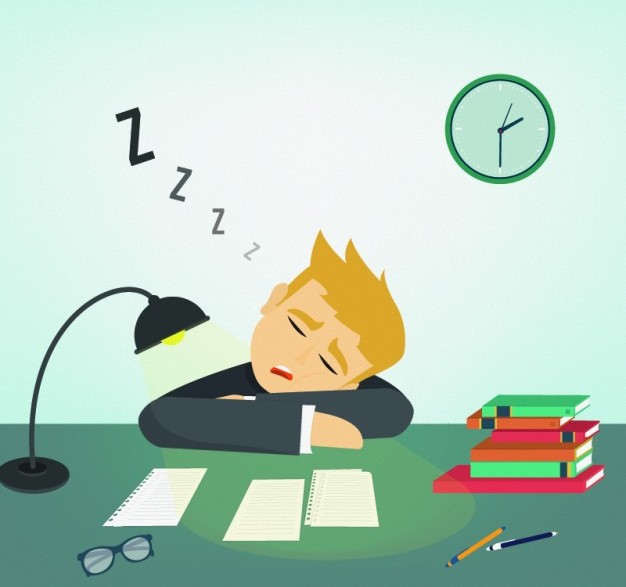
A typical sleep cycle consists of different stages of sleep, among which are lighter sleep stages, deeper sleep stages, and REM sleep. Patients suffering from narcolepsy, enter REM sleep almost immediately after they fall asleep, and periodically during the waking hours. In REM sleep we experience dreams and muscle paralysis, which can explain some common symptoms of narcolepsy – hallucinations, and cataplexy.
Symptoms of narcolepsy include the following:
Although there is no cure for this condition, its symptoms can be kept under control. Sleepiness is treated with stimulants based on amphetamine. Abnormal REM sleep symptoms are treated with antidepressant drugs.
To properly diagnose a sleep disorder, your doctor will perform a physical exam and check your medical and sleep history. It is necessary to check your medical history to determine if your sleep issue may be linked to another health problem.
Your doctor will also order various tests, such as polysomnography, EEG, and genetic blood testing. Polysomnography is required to evaluate your oxygen levels, body movements, and brain waves during sleep. EEG will assess the electrical activity in the brain and detect any potential issues. Lastly, genetic blood testing may help diagnose disorders such as narcolepsy or other underlying health conditions that might be disturbing your sleep.
Treatment varies on the type of the sleep disorder and its cause. If your sleep issue is caused by another health condition, treating it will solve the sleep problem. Sleep disorder therapy always includes a combination of medical treatments and lifestyle changes.
Medical treatment may include any of the following:
Lifestyle adjustments are the most vital part of successfully treating a sleep disorder. To improve your sleep quality, consider the following:
You are the only person that can relieve the effects of the sleep disorder you are dealing with. Even though you desire immediate relief, you must have patience, because long-term cases take more time to resolve. Following your treatment plan and regularly communicating with your doctor will certainly help you find your way to better sleep.
[et_pb_divider color=”#d1d1d1″ divider_position=”null” disabled_on=”on|on|off” _builder_version=”3.2″ hide_on_mobile=”on” _i=”1″ _address=”8.0.0.1″][/et_pb_divider]
If you an insomniac, you have probably tried improving your sleep by taking sleep supplements.
The question is do they work?
The truth is that most of them are ineffective. However, there are also natural sleep supplements that can really help you sleep deep and restfully each night.
In this section, we are going to discuss the most effective sleep supplements for deep sleep. Although you can find a lot of information online that certain supplements can help you sleep well, most of them can actually jeopardize your health. So, we have done a little research on our own to identify the most effective and science-backed supplements for better sleep.
If you struggle sleeping through the night, your body and mind won’t be able to recharge properly and prepare for the next day. During sleep, all the vital healing and restorative body functions are performed, starting from muscle repair and burning fat to excreting hormones that are crucial for normal functioning of the body and overall physical and mental health.
Without sleeping at least 8 or 9 hours a night, we are actually accelerating the aging process and slowing down our metabolism. Over time, our physical and mental performance will also be impaired, and our immune system will weaken. Without quality sleep, we jeopardize our entire well-being and predispose ourselves to severe disease and medical conditions such as diabetes, obesity, cancer, heart disease and depression.
If you suffer from mild or severe insomnia, you are not alone. We actually live in a world where sleep problems have become an epidemic. Unfortunately, research shows that more than 65 millions of Americans suffer from chronic insomnia while out of 3 individuals (worldwide), 1 doesn’t have a rejuvenating reparative sleep anymore and that the lack of sleep is not by their choice.
Nowadays, living a rapid, technology-saturated lifestyle is the biggest factor that negatively affects our sleep. This kind of lifestyle doesn’t only include being exposed to too much blue light, but also consists of inadequate sunlight exposure, late or no workouts, stress, bad diet and so on. Since this kind of lifestyle disrupted our circadian rhythms, instead of feeling sleepy before bed, we are hyperactive, and instead of waking up refreshed and energized in the morning, we feel drained and beaten. When we wake up dead tired in the morning, we have to find a way to live through the day, hoping that we will get a better night’s sleep tomorrow. Before we notice, we found ourselves trapped in an endless circle of sleep deprivation.
Hoping to break that circle, you might have tried some common over-the-counter sleep medications like Diphenhydramine (Nytol, Sominex, Sleepinal) or Doxylamine (Unisom, Nighttime Sleep Aid). After a few nights of restful sleep, you have noticed the pills aren’t working more or even worse – they have a completely opposite effect and keep you awake. So, why sleep medications affect your sleep this way? Most over-the-counter sleep meds are anti-histamine based. All anti-histamines have anticholinergic effect. By altering cholinergic transmission acetylcholine, a neurotransmitter and neuromodulator that plays an important role in arousal, attention, memory and motivation, is blocked, preventing us from feeling alert and awake. Pharmacists who invented this type of sleeping pills thought preventing us from feeling awake and alert will evoke sleepiness. However, instead of making us sleepy, anti-histamines only negatively impact our physical and mental performance and overall energy levels the day after we take it. After 48 to 72 hours of use, the effect will be the opposite of the desired one, and our level of sleeplessness will actually increase. These medications will also impair our cognitive performance because they block acetylcholine – a substance crucial for cognitive arousal and attention.
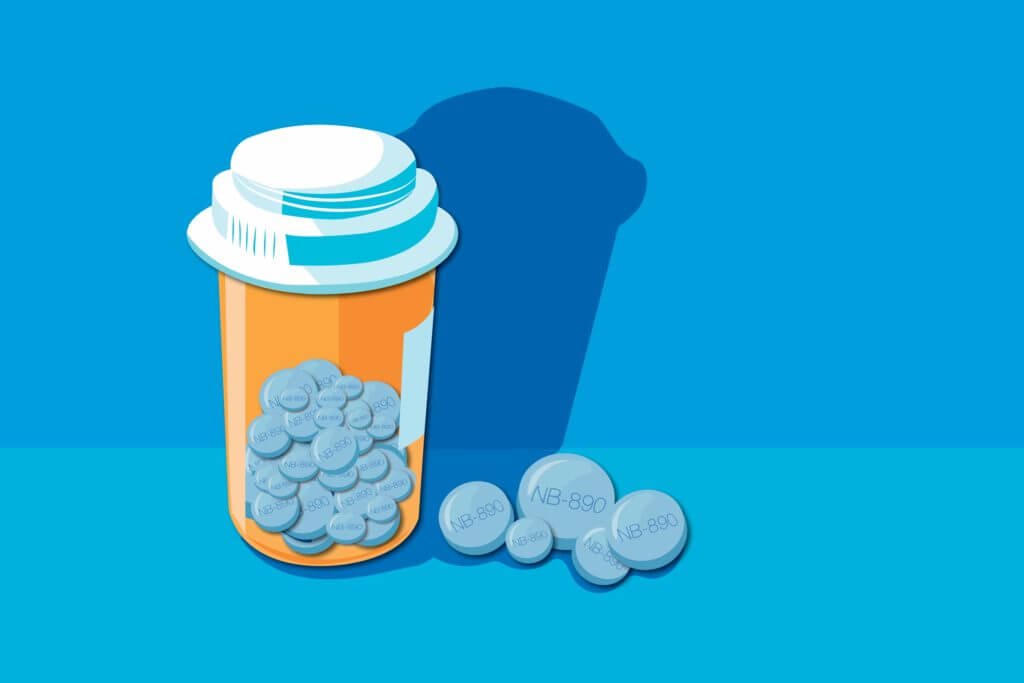
Prescription sleep medications are also bad for your health. They can help you re-establish normal circadian rhythm, but only if you use them for a short period of time. You mustn’t use sleeping pills constantly unless your doctor specifically told you to do so. Sleep meds can jeopardize your health if you use them for a long time because they do not only affect the sleep centers of your brain. Pills like Zolpidem Tartrate, also known as Ambien, affect many aspects of our nervous system as well as organs such as liver and stomach. A sleep scientist, Patrick Fuller, MD neurologist at Harvard Medical School warn us that sleep pills can be dangerous because they do not only affect our brain.For example, Ambien, that is still the most popular sleep med today has numerous side effects (double vision, forgetfulness, headaches, memory loss) that will certainly be triggered with frequent use. As we mentioned before with over-the-counter medicines, prescription meds also cause cognitive impairment and memory issues – as you obviously notice when informing yourself about the side effects of the drug.
![]()
Lastly, note that like any other drug, sleeping pills are highly addictive meaning, you will over time build up tolerance and require a bigger dose to make them work. When you become physically addicted, you won’t be able to fall asleep without them. After you get off them, your sleep problems (that weren’t solved previously) will only become worse. Sleep specialist Shawn Youngstedt, Ph.D., sums the dangers of using sleep meds by comparing them with cigarettes and warning us that sleep pills are equally dangerous as smoking a pack of cigarettes a day.
So if sleep meds don’t work, can dietary supplements do the trick? Unlike sleep medicines that inhibit our mental and physical performance the following day, it is a common belief that dietary natural sleep supplements made from a combination of vitamins, minerals, and herbs stimulate the sleep receptors in the brain and help us prepare for a night of deep, healthy and restoring sleep. Among the most popular dietary supplements for sleep are melatonin, valerian, and chamomile. So, do these natural sleep aids really work? If they do, how they work, and why are they better and different from sleep drugs.
Valerian is a well-known dietary supplement that has been used for insomnia for centuries. Although its effectiveness is not proven, many people use valerian as a sleeping aid. Although individuals struggling with insomnia have reported positive effects, there is no clear evidence this herb is efficient in alleviating or treating sleep disorders. Dr. Jawad Miran, a sleep medicine specialist warns us that valerian supplements available on the market today contain numerous unidentified compounds that might be harmful to our health. The truth is that of all ingredients, valerian is used the least. Overall, sleep experts don’t recommend using this substance to treat insomnia. Valerian might help people who have troubles falling asleep because it has a calming effect on the mind.
Chamomile, like valerian, has been used for centuries to fight insomnia. It also has a calming effect on our mind and will help us prepare for sleep. Chamomile’s effectiveness as a sleep aid is scientifically proven. Apart from alleviating insomnia, multiple studies show the numerous health benefits of consuming chamomile. Apart from improving our overall well-being, this marvelous herb can alleviate human ailments such as hay fever, inflammation, menstrual disorders, gastrointestinal disorders, rheumatic pain, and hemorrhoids and much more. Many different preparations of chamomile have been developed and used (essential oils, aromatherapy and similar), but the most popular is in the form of herbal tea.

Melatonin is a hormone secreted by the pineal gland in the brain and it plays a vital role in circadian rhythm regulation. As a sleep aid, melatonin is available on the market but, of course, in a synthetic form. When it comes to treating sleep disorders, studies suggest that melatonin may help with certain sleep disorders such as jet lag, delayed sleep phase disorder, even some issues related to shift work. When it comes to insomnia, study results are mixed and most sleep scientists cannot recommend melatonin for insomnia with a 100% assurance. There are a few studies that suggest synthetic melatonin may slightly reduce the time it takes to fall asleep. However, there is no confirmation melatonin can treat insomnia or improve your sleep quality in the long term. A recent analysis of more than 17 studies on the efficacy of melatonin supplementation on individuals with insomnia and other sleep disorders showed that those studies didn’t use the proper methodology or criteria to evaluate the effectiveness of the tested supplement.
5-hydroxytryptophan or 5-HTP is a complex chemical that our body makes from tryptophan. Tryptophan is an essential amino acid that we mostly get from food. Once tryptophan is converted into 5-HTP, the chemical is further transformed into serotonin. Serotonin is a neurotransmitter, although some believe it is a hormone. Serotonin is commonly known as the happiness hormone. Since serotonin has a positive effect on sleep, mood, anxiety, pain sensation, many believe that 5-HTP dietary supplements can raise the level of serotonin which will regulate our mood and help us to sleep better.
Serotonin doesn’t help manufacturing melatonin as many think. However, serotonin is equally important as melatonin because both play a vital role in regulating our natural sleep and wake cycle.
In their study, neuropsychiatrics Marty Hinz, Alvin Stein, and Thomas Uncini, have proven that 5-HTP cannot treat depression and a number of other serotonin-related diseases. Since it cannot efficiently increase the level of serotonin, it also completely ineffective as a sleep aid. These experts say that effective integration of 5-HTP amino acid precursor is much more complicated than simply giving some 5-HTP supplements to have more serotonin throughout the system. They further warn us that administering serotonin or dopamine amino acid precursors shouldn’t be done by taking only one amino acid. Doing so will cause improper balance of amino acid precursors and lead to increased side effects.
Gamma butyric acid is an inhibitory neurotransmitter produced in the brain that suppresses the excitatory neurotransmitters such as norepinephrine and glutamate. It is well known that that activation of GABA A receptors favor sleep, therefore this supplement may help you treat insomnia. Three generations of hypnotics are based GABA A receptor-mediated inhibitory processes. The first and the second generation (barbiturates and benzodiazepines) decrease waking while increasing slow-wave sleep. These meds also encourage the intermediate stage situated between slow-wave sleep and paradoxical sleep.
Imidazopyridines and cyclopyrrolones, known as the third generation of hypnotics, act similarly but do not affect the intermediate sleep stage. GABA B receptor antagonists enhance waking and paradoxical sleep. Paradoxical sleep is actually the dreaming stage of sleep.
Currently, sleep experts are researching GABA(C) receptor antagonist that may open up a new era for therapy of insomnia, epilepsy and narcolepsy.
A sleep study shows that people who are suffering from insomnia have GABA levels lowered 30% than normal. According to this study, GABA supplements may help handling chronic sleep problems. GABA relieves anxiety and relaxes body muscles. It also helps activate calming neurotransmitters in the brain. The affects GABA has on our body and mind can help us become sleepy in a natural way and fall asleep faster.
It is important to have in mind that you cannot synthesize a neurotransmitter and put it inside a medicine. GABA supplements support GABA but don’t include the compound. Sleep meds such as Ambien and Lunesta work to increase GABA’s effects by encouraging it to better bind with the brain’s receptors. There are no studies that prove taking GABA supplements orally can help increase its levels in the brain. However, taking meds that work with the compound may help relieve insomnia, not permanently treat it.
L-theanine is an amino acid found in various tea leaves, such as green tea. General uses of teas that contain theanine may help relieve stress or improve your immunity. Although there is little clinical information to support these claims, it is also believed that this amino acid can play a preventative role in cancer and heart disease.
When it comes to sleep, it is believed that L-theanine encourages deep sleep by increasing the activity of alpha waves in the brain. As we mentioned before, there are no studies that can support any of these claims. However, since this is a substance naturally found in tea leaves, and it has no side effects, it may be worth a try. Every tea has a calming effect on the body and mind which is generally helpful for overcoming insomnia and other sleep problems.
One-third of the United States population takes a vitamin or mineral supplement daily, and although they provide many benefits to the consumers, can vitamins also help us sleep better?
Minerals and vitamins have not been reported to improve sleep, but B vitamins have been advanced as a preventive for insomnia based on research that suggests deficiencies in vitamin B6 cause sleep disturbance. Lack of vitamin B-6 may disturb the metabolism of tryptophan, a substance that plays a vital role in regulating sleep patterns. Disrupted metabolism of tryptophan may further limit the amount of serotonin in your body and lead to disturbed sleep patterns and insomnia.
Passion flower is a well-known traditional herbal sedative and a popular sleep aid used for treating sleep disturbance. There is no much clinical trial done in humans, only animals, and those experiments showed that passion flower could enhance sleep. Recently, a study about the effects of passionflower herbal tea on subjective sleep quality was conducted. Among the tested were healthy adults with mild sleep disturbance issues. The adults that consumed passion flower in the form of tea reported sleeping better for a certain, short period of time. Study suggests these are only subjective sleep benefits. Since passion flower, like other herbal teas, aids relaxing and quieting brain activity, it may help you sleep better and relieve insomnia.
If you have decided to try a natural sleeping aid, no matter how natural and harmless it seems, different people may have different reactions to it. Start with small amounts, and if you notice anything unusual, stop the treatment. If you are using other medications or prescription sleep meds, you must consult with your doctor first.
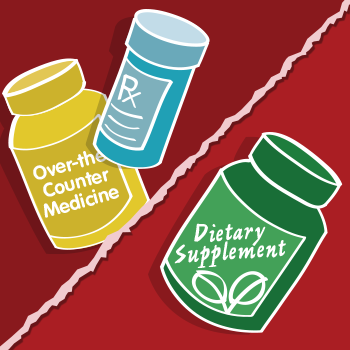
If you are having troubles sleeping at night, stay away from synthetics and stimulants. Try enhancing sleep with tryptophan and serotonin foods first, and start drinking herbal teas such as chamomile and passion flower. If you are experiencing emotional disturbance, if you are worried and if there is currently a lot of things going on in your life, sleep supplements won’t help you fall asleep. Before using meds or natural sleep aids, think about what is the root of your sleeping problem. It is important to take your sleep problems seriously and look for professional help if you can’t get your sleep under control.
[et_pb_divider color=”#d1d1d1″ divider_position=”null” disabled_on=”on|on|off” _builder_version=”3.2″ hide_on_mobile=”on” _i=”1″ _address=”10.0.0.1″][/et_pb_divider]
It’s that type of the night again. In the middle of the night, you are lying in bed, staring at the ceiling. You are thinking about your work in the morning, or your bills, or the kids. No matter how much you try, sleep won’t come, so you give up and reach for a sleeping pill.
Did you know that sleep pills are meant for short-term use only? Prolonged use can also cause dependence and tolerance, as well as severe side effects. Although most people know that with sleep drugs the benefits don’t always outweigh the risks, they still decide to take them. So, if you are planning to use sleep pills, you should at least know your facts.
Learn what you need to know about the side effects and safety concerns of common OTC and prescription sleep aids.
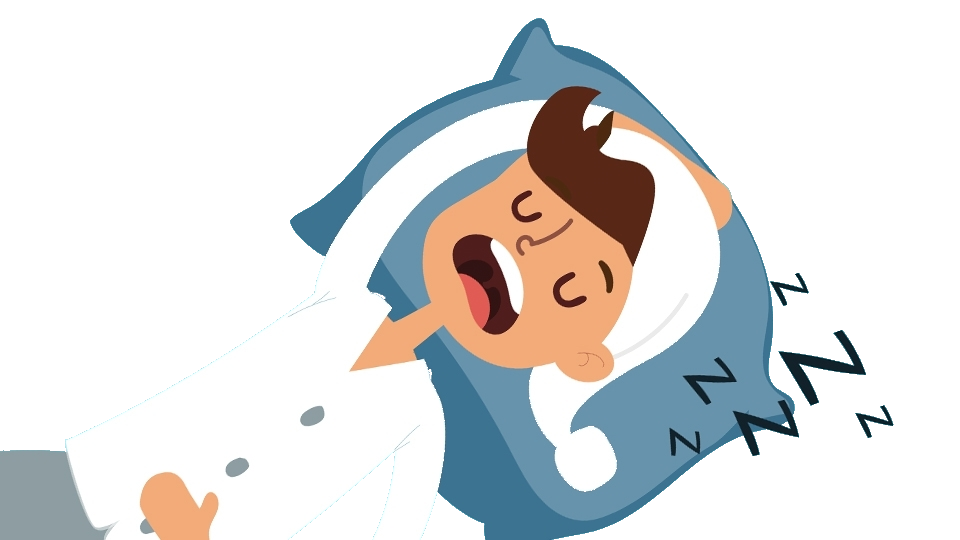
When you are sleep deprived and desperate to get at least some rest, it is very tempting to reach for a sleeping pill in the hope that it will provide you relief. Sleep pills will give you relief at that moment. However, if you have troubles falling asleep regularly, sleep aids won’t solve your problem. In fact, they can make things worse.
Sleep problems may occur due to different reasons. Sometimes, the issue is caused due to too much caffeine or browsing the internet late at night. In most cases, insomnia is a symptom of an underlying medical or psychological problem. Whatever it is, it can’t be cured with sleeping medications. In those cases, sleeping pills are just a temporary band aid.
Sleep pills should be used only in short-term situations, such as when you are traveling, stressing out due to a big event or when you are recovering from a medical procedure. Long-term is recommended only if you are suffering from a sleep disorder that must be put under control. In most cases, sleep disorders are efficiently treated without pills.
OTC, as well as prescription sleep aids, have similar side effects. Side effects vary on the specific drug, the dosage and how long the drug stays in your system. Typical side effects include the following:
Prescription sleep pills, especially benzodiazepines and non-benzodiazepines, can cause severe side effects such as allergic reactions, memory issues, hallucinations, aggressive behavior, and complex sleep-related behaviors like sleep-walking and sleep-driving.
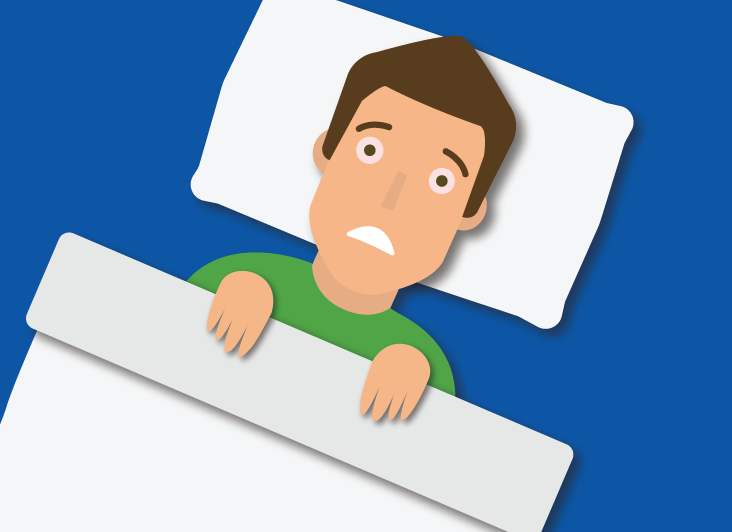
Besides side effects, the biggest risks of taking sleep pills are drug tolerance, drug dependence, withdrawal symptoms, drug interactions, rebound insomnia and the potential that you are masking an underlying health condition.
Drug tolerance: Due to prolonged use, your body may build up a tolerance to sleep aids, meaning you will have to increase the dosage in order for them to work. Increased dosage also leads to greater and frequent side effects.
Drug dependence: When you rely on sleep pills for a long time, you may be unable to fall asleep without them. Prescription pills are typically very addictive.
Withdrawal symptoms: When your body is used to sleeping pills, you can’t stop taking them abruptly. If you do, you will have withdrawal symptoms, such as nausea, sweating, and shaking.
Drug interactions: Sleeping drugs can be very dangerous because they can interact with other medications. To avoid the dangers of drug interactions, it is crucial to consult with a doctor before taking any sleep aid.
Rebound insomnia: In some cases, when you stop using sleep pills, your insomnia can become worse than before.
Masking an underlying health problem: Insomnia is, in most cases, caused by an underlying physical or mental issue. A medical, mental and even a sleep disorder can rarely be treated with sleeping pills.
Over-the-counter sleep pills can be divided into four main categories:
1. Anti-histamines
2. Melatonin
3. Herbal remedies
4. Combination sleep aids
Anti-histamines have the strongest sedative effect and usually cause you to feel groggy and drowsy the next morning. Melatonin based sleep pills help you regulate sleep patterns, especially when they are affected by jet lag or shift work.
Herbal remedies are made from plant extracts and usually have a milder effect. Herbal sleep pills can help you relax and reduce stress and anxiety. Combination sleep aids consist of melatonin, plant extracts and other ingredients that promote better night’s sleep.
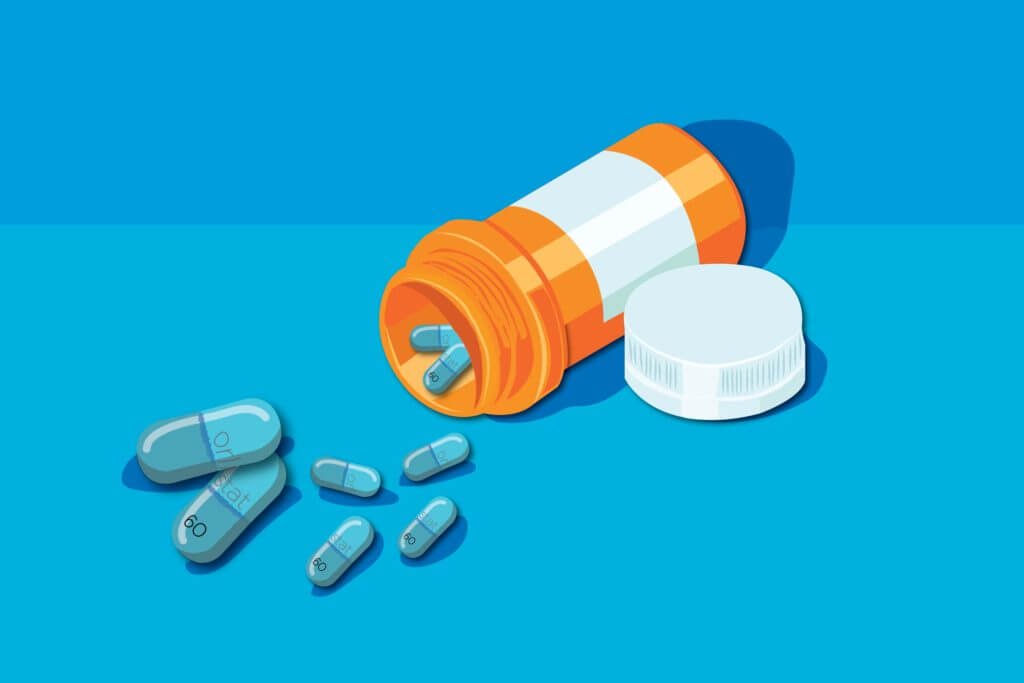
Standard OTC sleeping pills rely on antihistamines as their primary active ingredient. The active ingredient in OTC medications is usually diphenhydramine or doxylamine, and it helps you fall asleep by promoting drowsiness.
Common over-the-counter sleep medicines include:
Some OTC sleep aids combine antihistamines Acetaminophen. Acetaminophen is a pain reliever. Those kind of sleep aids are Tylenol PM and Aspirin-Free Anacin PM. Lastly, some sleep aids such as NyQuil, combine antihistamines with alcohol.
Antihistamines can help you fall asleep, but their sedating properties often cause a hangover feeling the next day. If used long-term, they can cause headaches and memory issues.
Common side effects of antihistamine sleeping pills include:
There are several different types of prescription pills. In general, prescription sleep pills act by affecting specific receptors in the brain and slowing the nervous system down. Some prescription sleep aids are used to induce sleep, while others help you stay asleep. Prescription sleep drugs are typically strong and stay in your system longer. They carry a high risk of becoming habit-forming.
Benzodiazepines are the oldest class of sleep medications that are nowadays rarely prescribed due to their high risk of dependence. Today, benzodiazepines sedative hypnotics are used to treat anxiety. Benzodiazepines that are used to treat insomnia are:
Benzodiazepines cause both physical and psychological dependence. Once you stop using them, you may experience physical withdrawal symptoms such as nausea, shaking, anxiety and rebound insomnia.
When used on a daily basis, these pills lose their effectiveness and require increasing the dosage. In only three to four weeks, benzodiazepines are no more effective than a sugar pill. Even if you take prescription sleep medications and sleep at night, the quality of your sleep won’t be improved. The quality of your sleep will actually be reduced, with less deep sleep and REM sleep stages.
Even if the pills worked, once you stop using them, insomnia will come back. As we already mentioned, this happens because sleep pills are only a bandage and not a cure. Rather than dealing with your sleep problem, you are only postponing it with sleep drugs.
Non-benzodiazepines are sleep aids of a new generation that work differently from benzodiazepines. Non-benzodiazepines have fewer side effects and less risk of dependency. Due to this, they can be used longer, but not more than six months.
Common non-benzodiazepine sleep aids are:
Although these types of sleep medication have fewer side effects, prolonged use can lead to:
Ramelteon, also known by its brand name Rozerem is a new type of sleep medication that works by mimicking melatonin, a neurotransmitter that is crucial for sleep regulation. Rozerem is used to treat sleep onset insomnia and has little risks of physical and psychological dependence. Side effects are also significantly decreased. A common side effect of Ramelteon is dizziness.
Many people use antidepressants such as Trazodone (Desyrel), Amitriptyline (Elavil), and Doxepin (Sinequan) as sleep aids. However, the FDA has not approved them for the treatment of insomnia because they cannot efficiently treat sleepiness or other sleep problems and disorders.
If you go to the drugstore, you will see a lot of so-called natural sleep supplements. The FDA doesn’t regulate dietary supplements for safety, quality, effectiveness, or truth, so it’s up to you if you want to try them out. However, there are some supplements that might actually help. The following supplements have the most scientific evidence that backs them up as a treatment for insomnia.
Valerian: Some studies show that valerian can help you increase the GABA levels in your brain. Since people with insomnia have reduced levels of GABA, valerian may improve the ability of GABA to bind to receptors in the brain. Valerian has a sedating effect that helps you unwind and calm down. It is considered safe and non-habit forming.

Melatonin: Melatonin is a neurotransmitter that is vital for regulating our sleep and wake cycle. It is naturally controlled by light. Melatonin levels increase during darkness and signalize our brain that it’s time for snoozing. The neurotransmitter is suppressed by light which tells our brain that it’s time to wake up. Unfortunately, melatonin is not effective in treating insomnia and more complex sleep disorders. However, it’s effective in treating jet lag and shift work disorder.
If you take melatonin, stick with low doses—1 to 3 milligrams—to minimize side effects the next morning.
Chamomile: Many individuals drink chamomile tea for its sedative properties; however, chamomile can also help you fall asleep, and that fact is scientifically proven. To get the full sleep-promoting benefit, drink a warm cup of chamomile tea every night before going to bed.
Tryptophan: Tryptophan is an amino acid that serves as a precursor to serotonin. Serotonin is mostly known as a happy hormone, but it is also vital in regulating sleep. Similar to melatonin, it tells your brain when it’s time to sleep. Some studies have shown that L-tryptophan, a byproduct of tryptophan, can help you fall asleep.
Kava: Some studies suggest that Kava can improve sleep in individuals who suffer from insomnia caused by stress. However, since kava can cause severe side effects such as liver damage, so you shouldn’t take it without consulting with your physician.
Other herbs that may help you unwind and fall asleep faster are passionflower, lemon balm, and lavender. Sleep supplements such as MidNite and Luna use a combination of the mentioned ingredients.
Natural sleep remedies such as lemon balm, passionflower or chamomile tea are harmless. However, other herbs may have severe side effects or even interfere with some prescribed medications. For example, Valerian interferes with antihistamines and statins. To avoid the potential dangers of natural sleep supplements, before trying an herbal sleep aid, it is best to do your research and talk with a doctor or a pharmacist.
Besides knowing the potential risks and side effects of OTC and prescription sleep aids, you should keep in mind the following safety guidelines.
Do not mix sleep pills with alcohol or other drugs: Alcohol interferes with your sleep quality and may further increase the sedative effect of the sleeping pill you have taken. The combination of sleep drugs and alcohol can be deadly.
Take a sleep pill when you have time for 7 to 8 hours of sleep: Sleep pills promote drowsiness or have a strong sedative effect on your brain. They are meant to put you to sleep for 7 to 8 hours. Sleeping less will cause you to feel very drowsy and dizzy. Your alertness will be reduced, and you may have troubles engaging in your daily activities.
Start with the lowest dose: Always start with the lowest dose to see how the drug affects you and if you will experience any side effects.
Avoid frequent use: Sleeping pills are for temporary use only. Prolonged use can cause dependency and tolerance. It is imperative to save sleeping pills only for emergencies, rather than nightly use.
Never drive a car after taking a sleeping pill: Since almost all sleep pills reduce your alertness the next day, it is important not to drive a car or operate machinery that might put yourself and others in danger. This is particularly recommended when you first start taking a new sleep aid and aren’t sure how it will affect you.
Carefully read the package insert: You always must pay attention to the potential side effects, as well as possible drug interactions. For example, antidepressants and antibiotics interact with sleeping pills. Even some foods such as grapefruit should be avoided using sleep drugs.
Talk to your doctor or pharmacist: Before taking a sleep aid, talk with your healthcare providers and inform him about other health conditions you have. Conditions such as high blood pressure, glaucoma, and depression can be worsened by sleep drugs. Other medications and even supplements that you are taking may interfere with OTC and prescription sleep drugs. You should also ask your doctor and pharmacist for specific usage and termination directions. Suddenly stopping medication often causes uncomfortable withdrawal symptoms and rebound insomnia.
Many studies have shown that the best way to combat insomnia and other sleep disorders is to change our lifestyle and implement healthy sleep habits. Even if you need to use sleep pills in the short term, you should make appropriate changes in your lifestyle and bedtime behavior to prevent similar problems in the future. Healthy sleep habits that consist of behavioral and environmental changes are a long-term solution to almost any sleep problem. They will definitely have a positive impact on your sleep, and you won’t have to worry about the risk of side effects, tolerance or dependence.
[et_pb_divider color=”#d1d1d1″ divider_position=”null” disabled_on=”on|on|off” _builder_version=”3.2″ hide_on_mobile=”on” _i=”1″ _address=”12.0.0.1″][/et_pb_divider]
Slipping under the covers without a calm mind makes catching some quality ZZZs pretty tricky. When you are stressed, you will have troubles falling asleep or staying asleep. Due to hyperarousal and increased levels of stress hormones, the time you spent in deep restorative sleep will also be reduced. As this isn’t enough, if you sleep poorly during the night, you will be more reactive to stress the following day.
Check out our expert tips to relax your mind before bedtime and sleep peacefully.
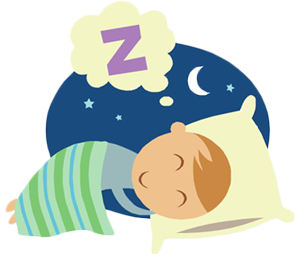
You probably realize that stress can interfere with the quality of your sleep. However, you may not know precisely how or why. When you are under a lot of stress, your arousal (both physiological and psychological) is increased to the measure that it disrupts the balance between sleep and wakefulness. Being hyper-aroused makes it impossible for your body and mind to enter deeper stages of sleep that are required for relaxed and restorative slumber.
Stress can affect your life in many ways, including impacting the quality of your sleep. People who suffer from chronic stress sleep less, their sleep quality is reduced, and they find it hard to function well during the day. If the issue is not addressed, the matter only gets worse.
Without proper sleep, your body increases its levels of stress hormones. The brain receptors connected to deep sleep are the same ones that regulate the control of stress hormones. So, when you don’t sleep well, and your body continues pumping out stress hormones, you will feel more stressed each day, and find it harder to fall asleep each night. On top of that, stress hormones peak in the afternoon and early evening, just when you should be preparing yourself to go to bed.
The more exhausted you are, the less you will be able to focus on work and other obligations, leading to even more stress. Since you will have difficulties controlling your emotions and reactions, you might snap at your friends, colleagues, and family, causing inconveniences in your relationships.
Are there more downsides to stress?
Prolonged and high levels of stress are linked to heart disease, depression, stomach ulcers and increased blood pressure. Due to stress, you may start grinding your teeth, which can lead to dental problems.
If you are under a lot of stress lately, you don’t have to experience sleep problems. On the flip side, if you have insomnia, it doesn’t mean stress necessarily causes it.
To determine whether or not your sleep problems are the result of stress, as with any symptom, you should ask yourself when it started. Is your insomnia situational? Or is it mood-related?
If you are always anxious about whether or not you are under stress, and it it’s hard for you to wind down at the end of the day, your problem may be a mood disorder, more than a problem with stress. Mood disorders are also characterized by feeling infuriated, depressed and blue much of the time.
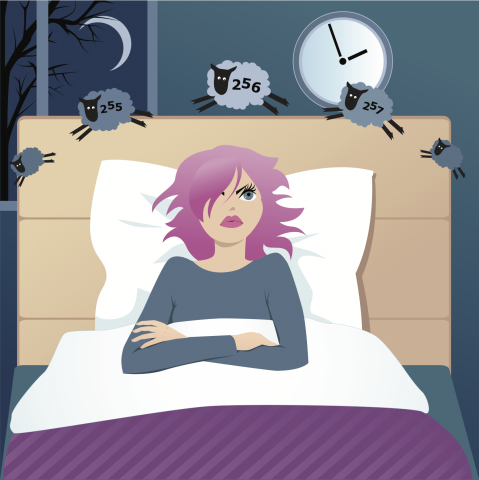
When insomnia is caused by situational stress, you will know what exactly is keeping you awake at night. You will also have difficulties letting your worries go.
Here are top three clues from your body and mind that you are too stressed to sleep soundly.
When you are under stress, you keep going over your worries and fears, and you contemplate them from different angles. Although you are tired, it feels like you are playing on a continuous loop, and you just can’t shut off and slip into slumber.
If you are experiencing muscle tension, headaches, neck pain and shoulder pain, your aches are probably stress related. When your muscles are tense, it will be hard to fall asleep or stay asleep. To complicate things further, poor sleep will cause more tension, and even stronger headaches the following day.
Racing heart is a common stress symptom, and it’s associated with increased levels of stress hormones such as cortisol. A variable heart rate can further be affected by physical tension and hyperarousal. It’s an ideal set up for sleep disturbances.
In order to calm the mind down before sleep, it is important to really spend some time winding down. A half an hour isn’t enough, especially if you are currently going through a difficult situation. If you suffer from stress-related insomnia, you need a “buffer zone” – a period of time to decrease the activity of alerting mechanisms and allow sleep systems to take over. We suggest starting to unwind two hours before bedtime.
There isn’t a golden rule or tip that will work for everybody. The general rule you should stick to is to do your best to relax and engage in activities that feel good. If you feel like playing video games, do it. If you want to go for a run, also do it. Anything that will distract you from your worries may work.
Experts recommend doing relaxation exercises such as deep breathing, yoga, and meditation. Here are other things you can try tonight.
A relaxing pre-sleep ritual that, for example, includes taking a warm bath or drinking a soothing cup of tea, can set you up for a good night of restorative sleep. Don’t engage in any stimulating activities such as texting or chatting with your friends and family on the phone. Dedicate this time to yourself and leave work and all obligations behind. An hour before bed, it is best to listen to music or read a book.
If you have been struggling with insomnia for a long time, you probably feel uncomfortable and tense when you walk into your bedroom because you fear you will just spend another night tossing and turning in bed. Negative thought such as these means you are allowing insomnia to take control over your life.
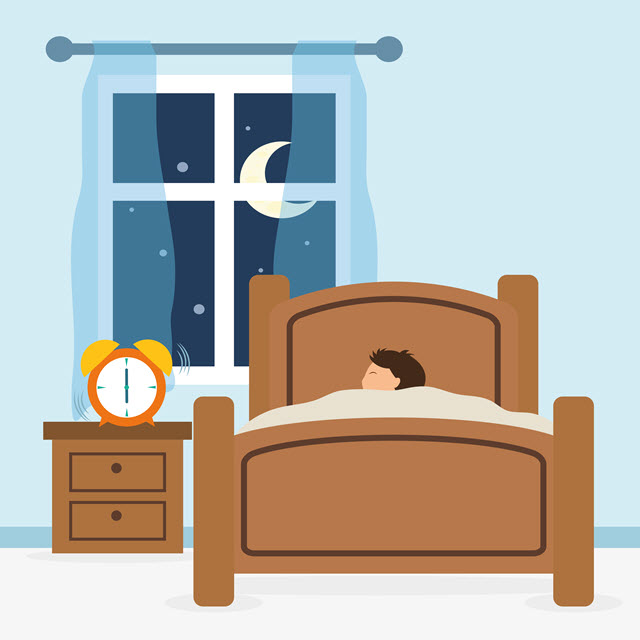
Conditioning yourself for different sleep behavior is crucial. If you don’t like going to your bedroom, change it until you start liking it. Your bedroom should be visually pleasing and comfortable, and you should associate it with pleasant activities such as sleep and sex. If you feel unpleasant when you wake up during the night, get up and spend some time awake in another room.
Activities such as working on your computer, watching TV or talking on the phone should be done outside of the bedroom.
An essential step in managing your stress is to figure out what is causing it. If it’s not a situational matter, take a good look at your physical condition and your daily activities. Once you identify your stressors, you can take the necessary steps to reduce or completely eliminate them.
Spending time with friends and family can significantly help you reduce stress. Instead of holding in your problems, share them with people care for you.
What you think, the way you think and what you tell yourself can help you manage your stress levels and feel better. You should avoid thought patterns that produce stress. You should avoid overgeneralizing a set of circumstances and stop worrying how thing should be. For example, you shouldn’t say you are a failure because you made only one mistake. Look for audiotapes and books that can help you learn thought management exercises.
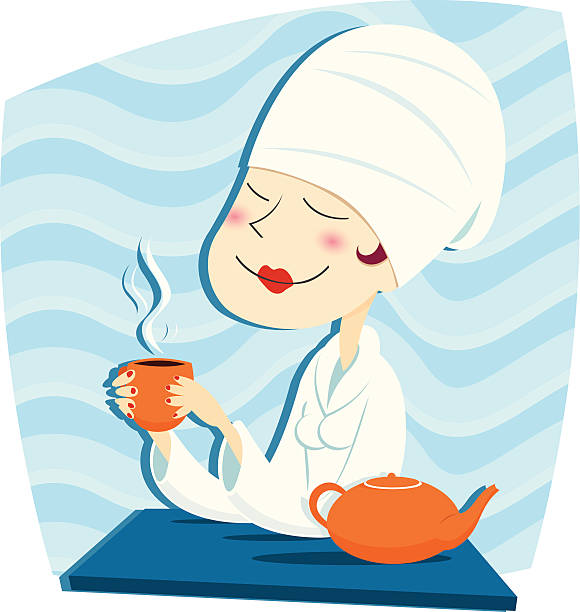
Say to yourself when lying in bed that you will not think about work or anything stressful but will take the next eight hours to fully recover and wake up refreshed and rested in the morning. Thoughts about past regrets or future fears are forbidden.
Working out is a great way to blow off some stem and reduce stress. Exercising will also help relaxing tense and painful muscles. However, avoid working out close to bed because you can disrupt sleep. Exercising is recommended at least 2 hours before going to bed to allow your body to cool down.
Some people take a glass of wine or other alcoholic beverage in the evening to relax and unwind before bed. However, this is not a good idea, not only because it has a stimulating effect on your brain, but also because alcohol steals your REM sleep and causes vivid dreaming. While it is true that a glass of wine can help fall asleep faster, that doesn’t neccessarily mean you will sleep better. When you drink before bed, during the first part of the night non-REM sleep stages will be prolonged, while REM sleep (when most dreams occur) will be suppressed. As your blood alcohol level drops, the reverse happens: your sleep will become shallow and you will start waking up more frequent. You brain will also try to reimburse the missed REM sleep which may cause vivid dreaming and nightmares. You will remember everything so clearly because light sleep allows easier dream recall. Sleeping under the influence of alcohol will make you feel tired and stressed in the morning.
Junk food and sugars are high in calories and low in nutritional value which may cause us to feel sluggish and out of energy. A healthy diet that includes reducing sugar, caffeine and alcohol intake can help you reduce stress.
Make sure you air your bedroom every day. Keeping the bedroom closed will decrease the air quality (CO2 levels will rise) which may disrupt sleep and increase stress levels.
Having too many responsibilities can lead to stress. However, if you are under a lot of stress and you feel like you are going to burst, you have to take a day off and free up some time for yourself.
When combined with a good behavior program, OTC pills may be helpful for a short amount of time. In case of prolonged use, all over-the-counter meds lose their effectiveness and have a high risk of causing “hangovers” the next day. Most people that take sleep pills feel tired the next day which is not the effect of their insomnia, but the side-effect of the drug. OTC medicines should be used very carefully. Experts advise using them as you would aspirin for a headache – only so much for so long.
If the above steps didn’t help, and if you have sleep problems on a regular basis, you should talk to your doctor. Only a professional can adequately determine the cause of your sleep disorder and the best way to address the issue.
It is wrong to think that you can’t do anything about your stress-related insomnia. When you think about the toll it takes on your life and ability to work and socialize with others; it is imperative to do something about it. Insomnia can be addressed through proper diagnosis and treatment. If your doctor can’t help you, ask a sleep expert for help. By all means, you mustn’t give up and accept it as a part of your life.
[et_pb_divider color=”#d1d1d1″ divider_position=”null” disabled_on=”on|on|off” _builder_version=”3.2″ hide_on_mobile=”on” _i=”1″ _address=”14.0.0.1″][/et_pb_divider]
If you have sleep problems and you want to overcome them, or if you simply want to sleep better, you have to make sleep a priority. Until you do, you can never truly fix it.
Without prioritizing your sleep, all the supplements, sleep pills and hacks in the world are only a band aid solution. If you are serious about sleeping better you have to treat your sleep right.
Treating your sleep right is like treating a specialist doctor’s appointment.
You have to make time for it and remember it. You need to make sure you are properly prepared and that you aren’t late. Tell your family about it and make sure they understand its importance. Lastly, plan your day around it and not vice versa.
Sleep is essential for your health and wellbeing, and although it requires putting in a lot of effort, as soon as you experience the benefits of regular and solid sleep, you will realize that all your hard work paid off.
Phew! We put A TON of work into this guide and we hope you enjoyed it. Now we would like to hear what you have to say.
What’s the #1 tip that you’re going to implement? Are you going to focus on crafting an ideal sleep-wake schedule? Use natural supplements? Or improve your bedroom environment?
Let me know by leaving a comment below.

A wannabe journalist who somehow ended up as an art historian. She is a gamer, a coffee addict and a sleep aficionado. When she is not researching about sleep and finding out new ways to fight off the insomnia beast, she's spending time with her friends, gaming or visiting local museums.